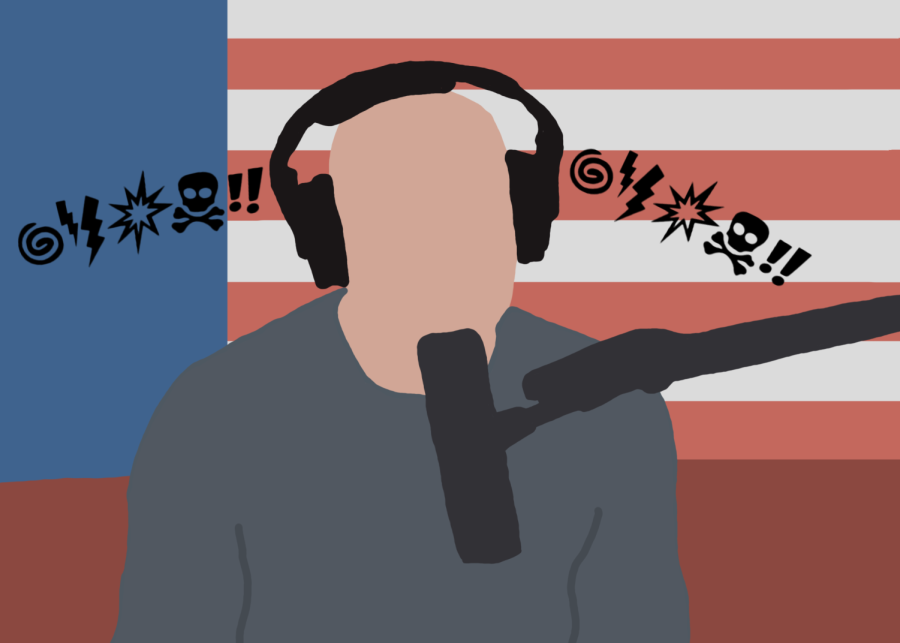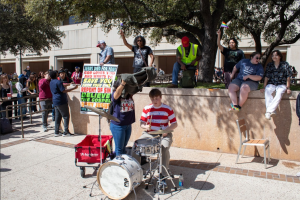Point/Counterpoint: Sometimes ‘outrage culture’ is the only option
February 22, 2022
We are undeniably in the age of social media, and accompanying the experience of that exponential growth is the birth of new umbrella terms used to describe certain internet behaviors. Outrage culture — similar to cancel culture — is described by writer Daniel Sacerio as a “set of behaviors, usually displayed on social media, that aims to hold individuals and groups accountable for alleged political and social transgressions through public shaming.” There are a myriad of reasons for the display of “outrage culture” over a situation that many might consider unworthy of the negative attention. On the other hand, some might consider outrage culture to be a necessary reaction. The Joe Rogan situation, for example, is multifaceted in nature and calls for critical analysis.
“The Joe Rogan Experience,” a podcast with millions of views per episode, has been under scrutiny of the public eye for over a month now — and for good reason. Whether you are a fan of the world famous podcaster or not, you have probably heard about Rogan using the N-word, which is known as one of the most viciously derogatory epithets in the English language. The controversy over the use of the N-word, a decades-long battle being fought by the same people accused of displaying outrage culture, has surely resulted in the word’s use diminishing over time; however, that does not mean its painfully offensive history is erased. So, when a compilation video of him using the N-word over 20 times in the span of 12 years was released, is it not understandable for him to be rightfully held accountable for his actions? No matter the context of his use of the N-word, wouldn’t someone with a following as large as Rogan’s take into consideration the implications of his words before he said them? With this logic, outrage culture seems like an appropriate result of his actions.
The act of holding a public figure accountable for their actions should not be ridiculed; when someone has a platform with the power to influence millions of people, they are held to a higher standard. When people like Rogan use the N-word, it is incredibly dangerous. Words insinuate violence, and when anyone who is not Black uses the N-word in any context — flippant or not — it is an act of hatred. Jonathan Capehard, a writer for the Washington Post, spoke about “how that word was used to dehumanize Black people and keep them in their place,” and “how the n-word was likely among the last words heard by Black people before they were lynched.” People who speak such words are spreading hate speech, and if you are mad about it, that is okay.
The same kind of logic should be applied to people in positions of power speaking on issues in which they have no right to — like when Rogan gave his not-so-humble opinion on transgender athletes or happily spread misinformation about COVID-19.
Millions of people, young and old, saw Rogan use that word. It is possible that the same people will think it is okay to use that word because, well, Rogan said it and got away with it. All too often the actions of celebrities get swept under the rug because of their social status and their money; outrage is the only viable option because people learn from repercussions.
So, maybe the truth is we are angry at celebrities because they know the powerful influence they have over their giant followings, yet they still choose to utter the words that perpetuate violence and blatantly disregard entire groups of people. Maybe we are upset because our inevitable outrage is carelessly reduced to simply being insatiable within our own lives. Or, perhaps it is not anger at all. What if it’s the will to stand up for what is right — a will so strong that we have made life and politics indistinguishable?








